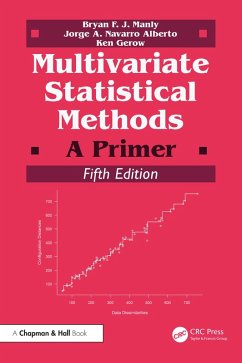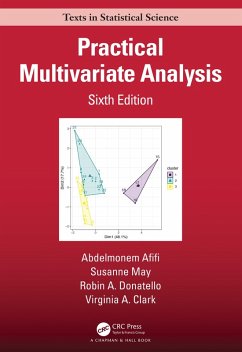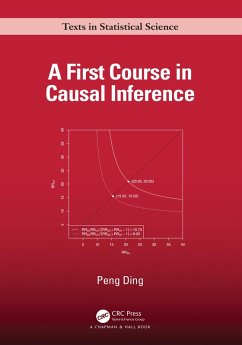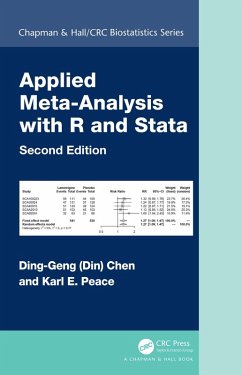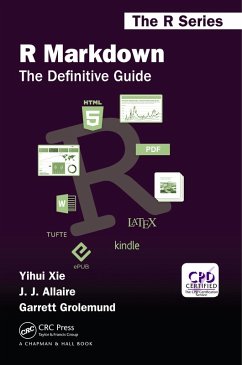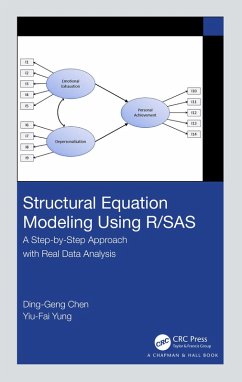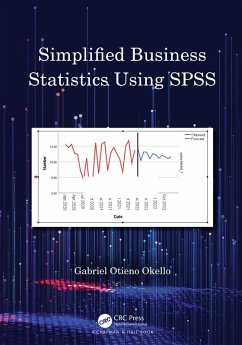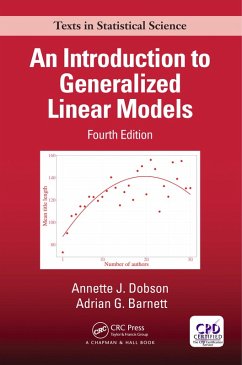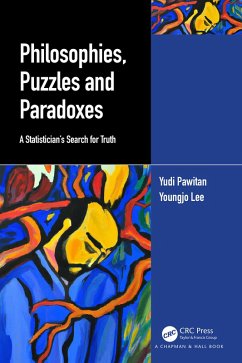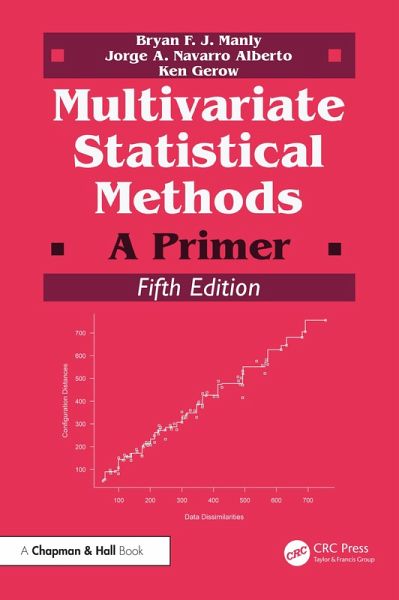
Multivariate Statistical Methods (eBook, PDF)
A Primer
Versandkostenfrei!
Sofort per Download lieferbar
55,95 €
inkl. MwSt.
Weitere Ausgaben:

PAYBACK Punkte
28 °P sammeln!
Multivariate Statistical Methods: A Primeroffers an introduction to multivariate statistical methods in a rigorous yet intuitive way, without an excess of mathematical details. In this fifth edition, all chapters have been revised and updated, with clearer and more direct language than in previous editions, and with more up-to-date examples, exercises, and references, in areas as diverse as biology, environmental sciences, economics, social medicine, and politics.Features. A concise and accessible conceptual approach that requires minimal mathematical background.. Suitable for a wide range of ...
Multivariate Statistical Methods: A Primer
offers an introduction to multivariate statistical methods in a rigorous yet intuitive way, without an excess of mathematical details. In this fifth edition, all chapters have been revised and updated, with clearer and more direct language than in previous editions, and with more up-to-date examples, exercises, and references, in areas as diverse as biology, environmental sciences, economics, social medicine, and politics.
Features
. A concise and accessible conceptual approach that requires minimal mathematical background.
. Suitable for a wide range of applied statisticians and professionals from the natural and social sciences.
. Presents all the key topics for a multivariate statistics course.
. The R code in the appendices has been updated, and there is a new appendix introducing programming basics for R.
. The data from examples and exercises are available on a companion website.
This book continues to be a great starting point for readers looking to become proficient in multivariate statistical methods, but who might not be deeply versed in the language of mathematics. In this edition, we provide readers with conceptual introductions to methods, practical suggestions, new references, and a more extensive collection of R functions and code that will help them to deepen their toolkit of multivariate statistical methods.
offers an introduction to multivariate statistical methods in a rigorous yet intuitive way, without an excess of mathematical details. In this fifth edition, all chapters have been revised and updated, with clearer and more direct language than in previous editions, and with more up-to-date examples, exercises, and references, in areas as diverse as biology, environmental sciences, economics, social medicine, and politics.
Features
. A concise and accessible conceptual approach that requires minimal mathematical background.
. Suitable for a wide range of applied statisticians and professionals from the natural and social sciences.
. Presents all the key topics for a multivariate statistics course.
. The R code in the appendices has been updated, and there is a new appendix introducing programming basics for R.
. The data from examples and exercises are available on a companion website.
This book continues to be a great starting point for readers looking to become proficient in multivariate statistical methods, but who might not be deeply versed in the language of mathematics. In this edition, we provide readers with conceptual introductions to methods, practical suggestions, new references, and a more extensive collection of R functions and code that will help them to deepen their toolkit of multivariate statistical methods.
Dieser Download kann aus rechtlichen Gründen nur mit Rechnungsadresse in A, B, BG, CY, CZ, D, DK, EW, E, FIN, F, GR, HR, H, IRL, I, LT, L, LR, M, NL, PL, P, R, S, SLO, SK ausgeliefert werden.




